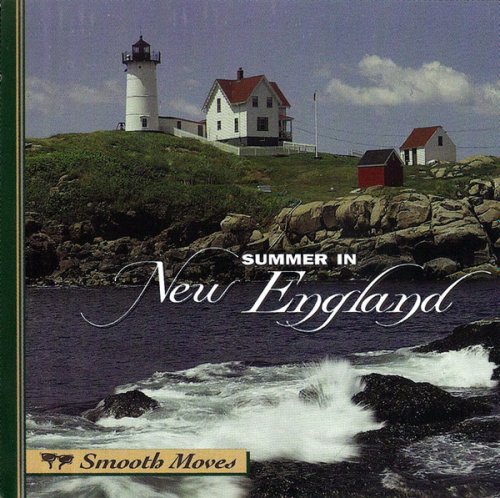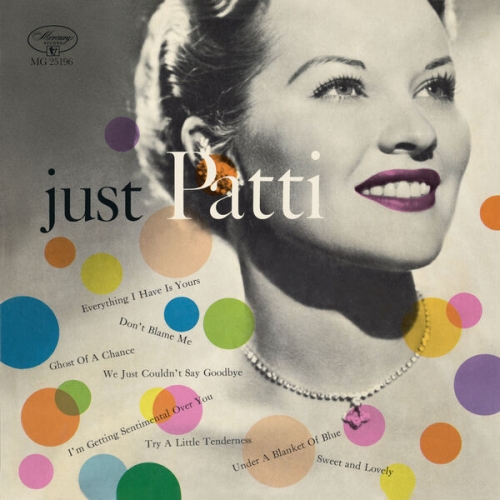The King'S Consort - Purcell: The Complete Secular Solo Songs (2003)
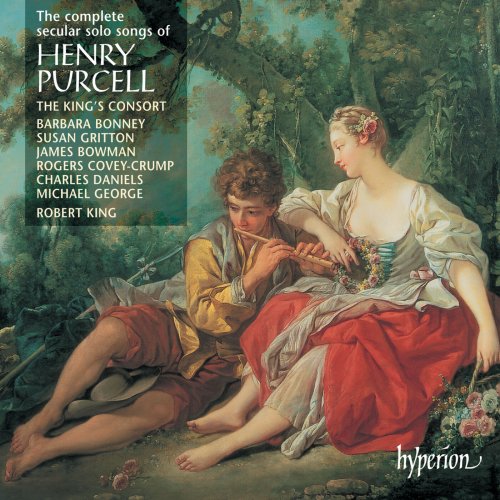
Artist: The King'S Consort
Title: Purcell: The Complete Secular Solo Songs
Year Of Release: 2003
Label: Hyperion
Genre: Classical
Quality: flac lossless (tracks) +Booklet
Total Time: 03:42:49
Total Size: 863 mb
WebSite: Album Preview
TracklistTitle: Purcell: The Complete Secular Solo Songs
Year Of Release: 2003
Label: Hyperion
Genre: Classical
Quality: flac lossless (tracks) +Booklet
Total Time: 03:42:49
Total Size: 863 mb
WebSite: Album Preview
CD1
01. Draw Near, You Lovers, Z. 462
02. While Thirsis, Wrapp'd in Downy Sleep, Z. 437
03. Love, Thou Can'st Hear, Tho' Thou Art Blind, Z. 396
04. I Loved Fair Celia, Z. 381
05. What Hope for Us Remains Now He Is Gone?, Z. 472
06. Pastora's Beauties When Unblown, Z. 407
07. A Thousand Sev'ral Ways I Tried, Z. 359
08. Urge Me No More, Z. 426
09. Farewell, All Joys, Z. 368
10. If Music Be the Food of Love, Z. 379a
11. Amidst the Shades and Cool Refreshing Streams, Z. 355
12. They Say You're Angry, Z. 422
13. Let Each Gallant Heart, Z. 390
14. This Poet Sings the Trojan Wars "Anacreon's Defeat", Z. 423
15. Ah, How Pleasant 'Tis to Love, Z. 353
16. My Heart, Whenever You Appear, Z. 399
17. On the Brow of Richmond Hill, Z. 405
18. Rashly I Swore I Would Disown, Z. 411
19. Since the Pox, or the Plague, Z. 471
20. Beneath a Dark and Melancholy Grove, Z. 461
21. Musing On Cares of Human Fate, Z. 467
22. Whilst Cynthia Sung, All Angry Winds Lay Still, Z. 438
23. How I Sigh When I Think of the Charms of My Swain, Z. 374
24. Ye Happy Swains, Whose Nymphs Are Kind, Z. 443
25. Beware, Poor Shepherds "The Caution", Z. 361
26. See How the Fading Glories of the Year, Z. 470
27. Cease, Anxious World, Your Fruitless Pain, Z. 362
28. Oh, Fair Cedaria, Hide Those Eyes, Z. 402
CD2
01. I Love and I Must "Bell Barr", Z. 382
02. When Her Languishing Eyes Said "Love!", Z. 432
03. Not All My Torments Can Your Pity Move, Z. 400
04. Ah! Cruel Nymph!, Z. 352
05. Sylvia, Now Your Scorn Give Over, Z. 420
06. Since One Poor View Has Drawn My Heart, Z. 416
07. I Resolve Against Cringing and Whining, Z. 386
08. Gentle Shepherds, You That Know "Pastoral Elegy On the Death of Mr John Playford", Z. 464
09. If Grief Has Any Pow'r to Kill, Z. 378
10. She That Would Gain a Faithful Lover, Z. 414
11. Fly Swift, Ye Hours, Z. 369
12. Hears Not My Phillis How the Birds "The Knotting Song", Z. 371
13. Phillis, Talk No More of Passion, Z. 409
14. Celia's Fond, Too Long I've Lov'd Her, Z. 364
15. In Vain We Dissemble, Z. 385
16. When My Aemelia Smiles, Z. 434
17. Farewell, Ye Rocks, Ye Seas and Sands, Z. 463
18. What a Sad Fate Is Mine, Z. 428a
19. I Take No Pleasure in the Sun's Bright Beams, Z. 388
20. Love's Pow'r in My Heart Shall Find No Compliance, Z. 395
21. How Delightful's the Life of an Innocent Swain, Z. 373
22. She, Who My Poor Heart Possesses, Z. 415
23. Love Arms Himself in Celia's Eyes, Z. 392
24. When First My Shepherdess and I, Z. 431
25. Through Mournful Shades and Solitary Groves, Z. 424
26. If Music Be the Food of Love, Z. 379b
27. Scarce Had the Rising Sun Appear'd, Z. 469
28. Who But a Slave Can Well Express, Z. 440
29. High On a Throne of Glitt'ring Ore, Z. '65
30. Incassum Lesbia, incassum rogas "The Queen's Epicedium", Z. 383
CD3
01. She Loves and She Confesses Too, Z. 413
02. Amintas, to My Grief I See, Z. 356
03. Corinna Is Divinely Fair, Z. 365
04. Amintor, Heedless of His Flocks, Z. 357
05. He Himself Courts His Own Ruin, Z. 372
06. No, to What Purpose Should I Speak?, Z. 468
07. Sylvia, 'Tis True You're Fair, Z. 512
08. Lovely Albina's Come AShore, Z. 394
09. Spite of the Godhead, Pow'rful Love, Z. 417
10. If Music Be the Food of Love, Z. 379c
11. Phillis, I Can Ne'er Forgive It, Z. 408
12. Bacchus Is a Pow'r Divine, Z. 360
13. From Silent Shades "Bess of Bedlam", Z. 370
14. Let Formal Lovers Still Pursue, Z. 391
15. I Came, I Saw, and Was Undone "The Thraldom", Z. 375
16. Who Can Behold Florella's Charms?, Z. 441
17. Cupid, the Slyest Rogue Alive, Z. 367
18. If Pray'rs and Tears, Z. 380
19. In Cloris All Soft Charms Agree, Z. 384
20. Let Us, Kind Lesbia, Give Away, Z. 466
21. Love Is Now Become a Trade, Z. 393
22. Ask Me to Love No More, Z. 358
23. O Solitude, My Sweetest Choice!, Z. 406
24. Olinda in the Shades Unseen, Z. 404
25. Pious Celinda Goes to Prayers, Z. 410
26. When Strephon Found His Passion Vain, Z. 435
27. The Fatal Hour Comes On Apace, Z. 421
28. Sawney Is a Bonny Lad, Z. 412
29. Young Thirsis' Fate, Z. 473
Among all his remarkable and varied compositional talents, Purcell was the supreme craftsman when it came to setting his native language to music. Addison wrote of Purcell’s ‘Tunes so wonderfully adapted to his Words’ and Playford, in his introduction to the first volume of Orpheus Britannicus (1706) commented that ‘The Author’s extraordinary Tallent in all sorts of music, is sufficiently known; but he was particularly admir’d for his Vocal, having a peculiar Genius to express the Energy of English Words, whereby he mov’d the Passions as well as caused Admiration in all his Auditors’. Purcell combined an innate sense of the natural rhythms of speech and a wonderful melodic flair with a richness of harmonic language that few composers have ever matched.
For many of his commissions, Purcell had no choice of librettist. When he was required, as a royal employee, to set an ode or welcome song to music, a text would be supplied and Purcell was required to produce the goods: often he made a proverbial silk purse out of a sow’s ear. Sometimes it is much to the author’s benefit that anonymity has been bestowed on his second-rate, sycophantic efforts. In the forty plays for which he provided music, Purcell was presented with texts of all standards. The poet John Dryden summed up the contemporary attitude to such textual inadequacies with his 1697 paraphrase of Virgil: ‘The tune I still retain, but not the words’. The literary world had, however, survived Cromwell’s reign better than the musical community, and composers in the last three decades of the seventeenth century who were free to choose their own text were able to select from a wide range of contemporary and older material. When presented with fine poetry whose emotional content or subject matter inspired him, Purcell’s musical response could be devastating.
Songs enjoyed a wider audience than any other musical form: they were performed by professional musicians for royal entertainment at court, sung by amateur musicians at home, or simply heard in the streets. Pepys’s diary is full of references to performances by amateur musicians, and the music historian Sir John Hawkins tells an amusing story which, whether true or not, gives an idea of the difficulties of working for royalty. Demanding musical entertainment one day, Queen Mary sent for the soprano Mrs Hunt, the bass John Gostling and Purcell. They performed several of Purcell’s songs, but the Queen was not satisfied with such sophisticated music, eventually requesting that Mrs Hunt sing the Scots ballad ‘Cold and Raw’. Mrs Hunt complied, and accompanied herself on the lute. Purcell meantime sat at the harpsichord ‘unemployed and not a little nettled at the queen’s preference for a vulgar ballad to his music’. His tongue-in-cheek response was to include the melody in a section of his next birthday ode, Love’s Goddess sure was blind.
Almost all of Purcell’s eighty-five secular solo songs are fine works. A good number are masterpieces. Predictably, the majority present wistful or sad sentiments, and Purcell produces ravishing music. The variety of styles and forms is astonishing, ranging from songs whose influence can be traced back to the Elizabethan strophic lute-song, through highly charged works created from florid semi-recitative, to songs on ground basses and substantial Italianate cantatas. This set does not include any of the 150 songs – nor the wonderful instrumental music – that were written by Purcell for the stage. Similarly, a number of songs now thought to have been misattributed to Purcell are also omitted. Everywhere in the eighty-seven songs presented in this series variety abounds, and everywhere shines the brilliant inventiveness of a unique composer of whom Roger North said: ‘A greater musical genius England never had’.
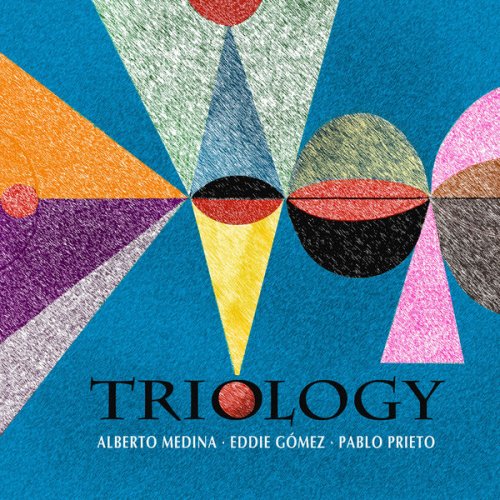
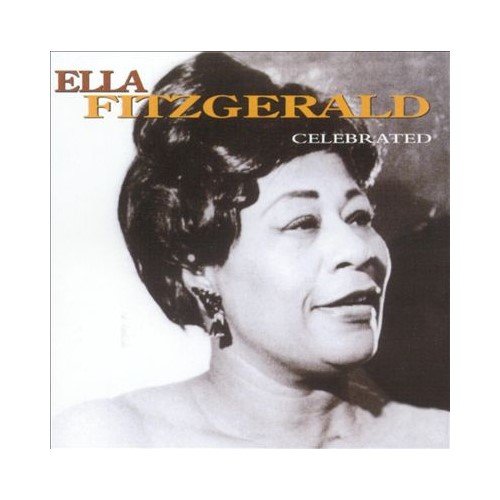

![The Bassface Swing Trio - Bossa, Ballads and Blues (2021) [DSD] The Bassface Swing Trio - Bossa, Ballads and Blues (2021) [DSD]](https://www.dibpic.com/uploads/posts/2026-01/1769359431_folder.jpg)
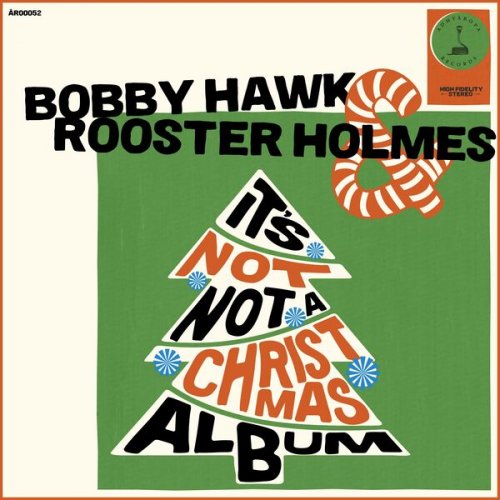
![Pierre de Bethmann Trio - Essais, Volume 6 (2026) [Hi-Res] Pierre de Bethmann Trio - Essais, Volume 6 (2026) [Hi-Res]](https://img.israbox.com/img/2026-01/23/aulasyki7yj01xosje5mvoqe7.jpg)

